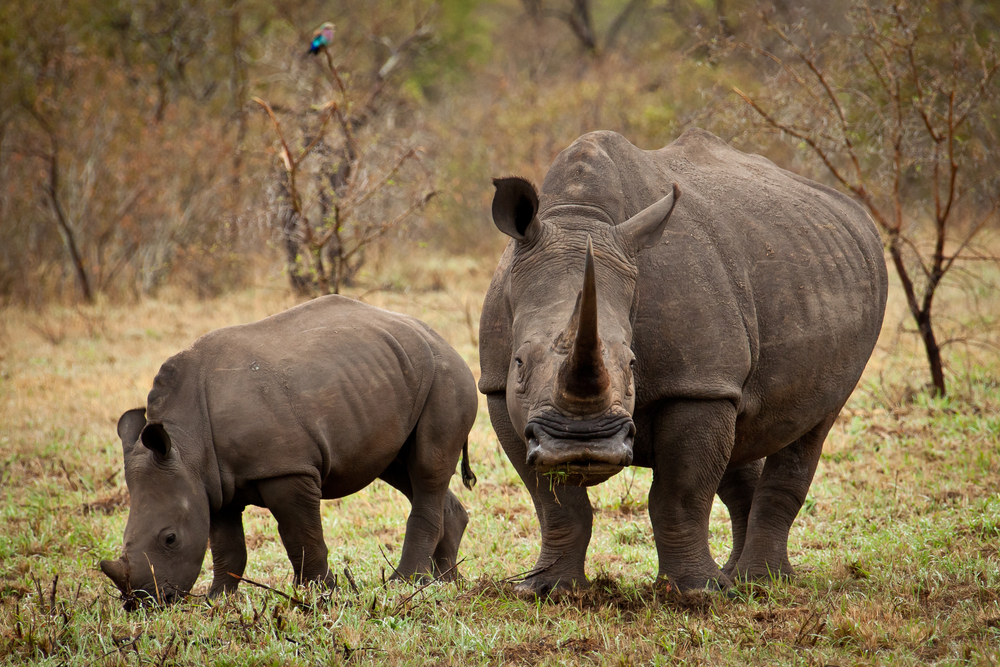How Children in Vietnam May Prevent the Rhino's Extinction (Op-Ed)


Teresa Telecky, director of wildlife for Humane Society International (HSI), is an expert on the Convention on International Trade in Endangered Species and serves as the executive director and vice president of the Species Survival Network. She contributed this article to LiveScience's Expert Voices: Op-Ed & Insights.
Somewhere in Vietnam, an uncle, a father or an aunt is downing a powdery substance of crushed rhino horn to "heal" a medical ailment. But science has proven that rhino horn has no medicinal value — it is made of keratin, the same as human fingernails — and it is not a cure for anything. The only outcome here is that rhinos are being driven to extinction.
So far this year, 688 rhinos in South Africa have been killed for their horns. That figure is making 2013 shape up to be the worst rhino-poaching year ever recorded. Even as I write this, another rhino has undoubtedly been slaughtered. [Mass Rhino Slaughter in South Africa Worries Conservationists]
Humane Society International, in cooperation with the government of Vietnam, has embarked on a three-year public awareness campaign to reduce the demand for rhino horn in that country, one of the major markets for rhino horn and where many people are under the misguided impression that rhino horn can cure. Others value the substance as a high-end gift or status symbol. [Javan Rhino Officially Extinct In Vietnam]
In celebration of World Rhino Day this past weekend, HSI launched the children's education part of our campaign. Vietnamese schoolchildren are learning about endangered rhinos — and they can pass on what they learn to that uncle, father, aunt or other relative who consumes rhino horn. "I'm a Little Rhino," a book written by HSI, teaches children about these wonderful animals, the poaching threat and the need to stifle the demand for rhino horn to save rhinos from extinction. Copies of the book have been given to children across Hanoi, and thousands more are set to be distributed to Vietnamese schoolchildren in the coming weeks.
The idea behind this is that by educating children about rhinos, using fun materials, HSI and its partners can not only change that child's view of rhinos and the views of future generations, but through them we also educate their family members. As Do Quang Tung, the director of Vietnam's Convention on International Trade in Endangered Species Management Authority said about our program, "When we educate children, we also educate their parents and other family members. When we reach hundreds of children, we reach thousands of adults."[]
Vietnamese consumers of rhino horn need to understand they are wasting their money. Furthermore, some rhino horn sold in Vietnam likely will harm health if consumed. This is because in a bid to save rhinos, many conservationists and wildlife managers in South Africa are pumping horns full of toxic chemicals. The chemicals don't harm rhinos but can make humans very sick.
Get the world’s most fascinating discoveries delivered straight to your inbox.
HSI is planning many more rhino events in Vietnam in the coming year. Let's hope that when people celebrate World Rhino Day 2014, many thousands more Vietnamese people will know that buying rhino horn means extinction for rhinos. To consume or to share rhino horn with families or business associates is just like consuming poisoned fingernails — and there is nothing glamorous or healthful about that.
The views expressed are those of the author and do not necessarily reflect the views of the publisher. This version of the article was originally published on LiveScience.



